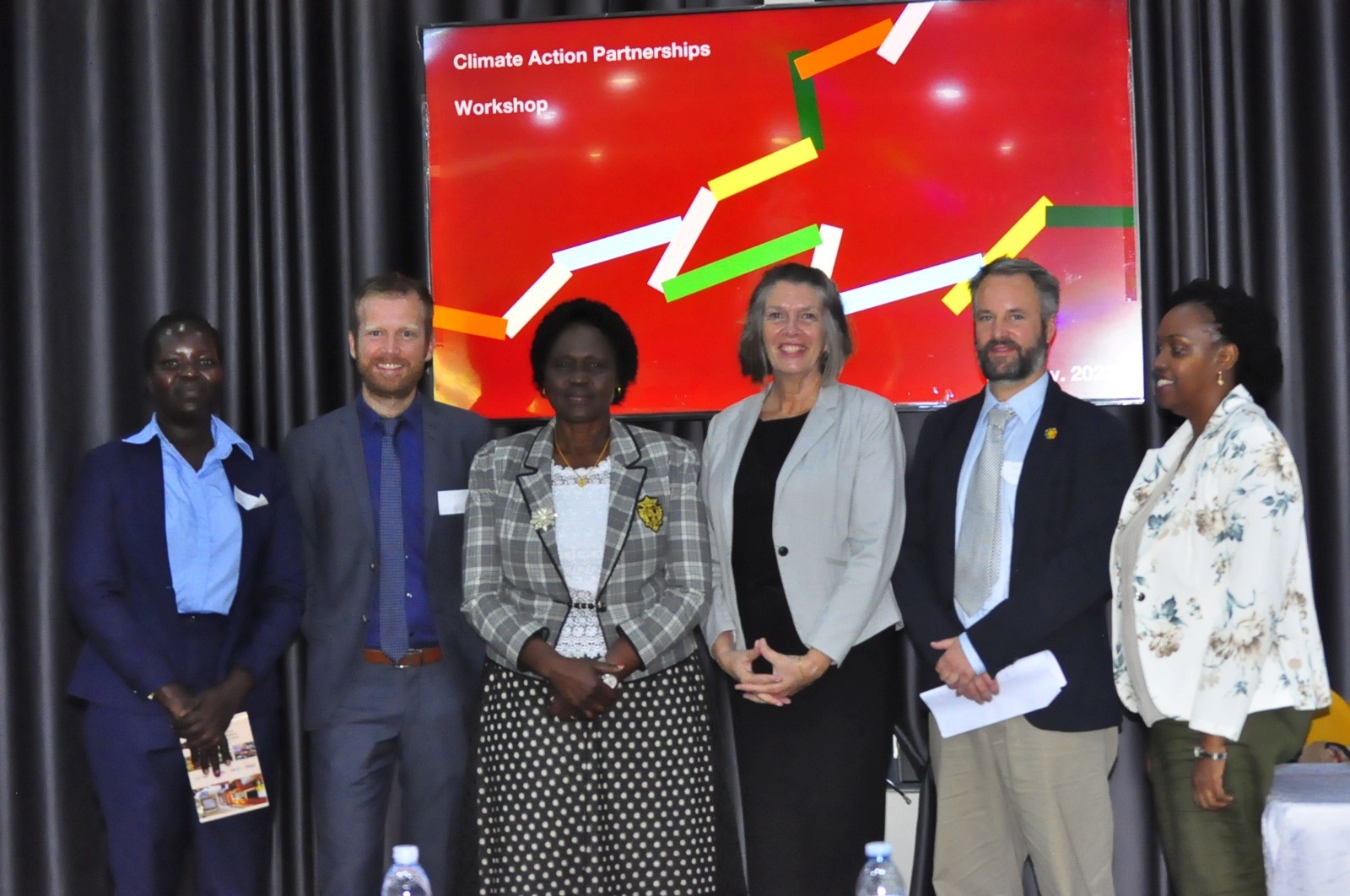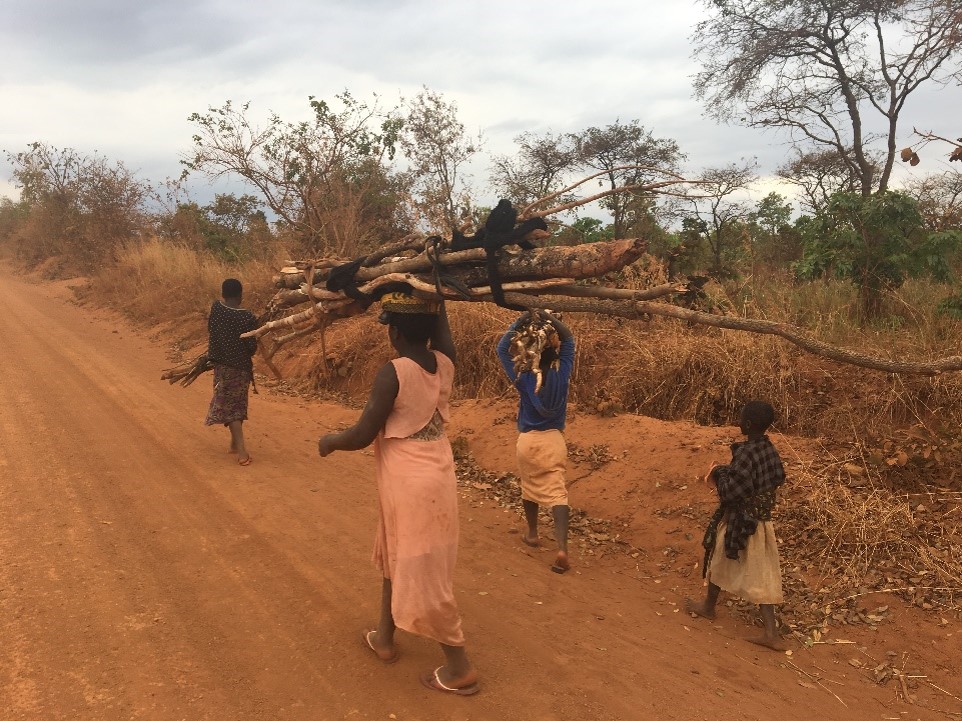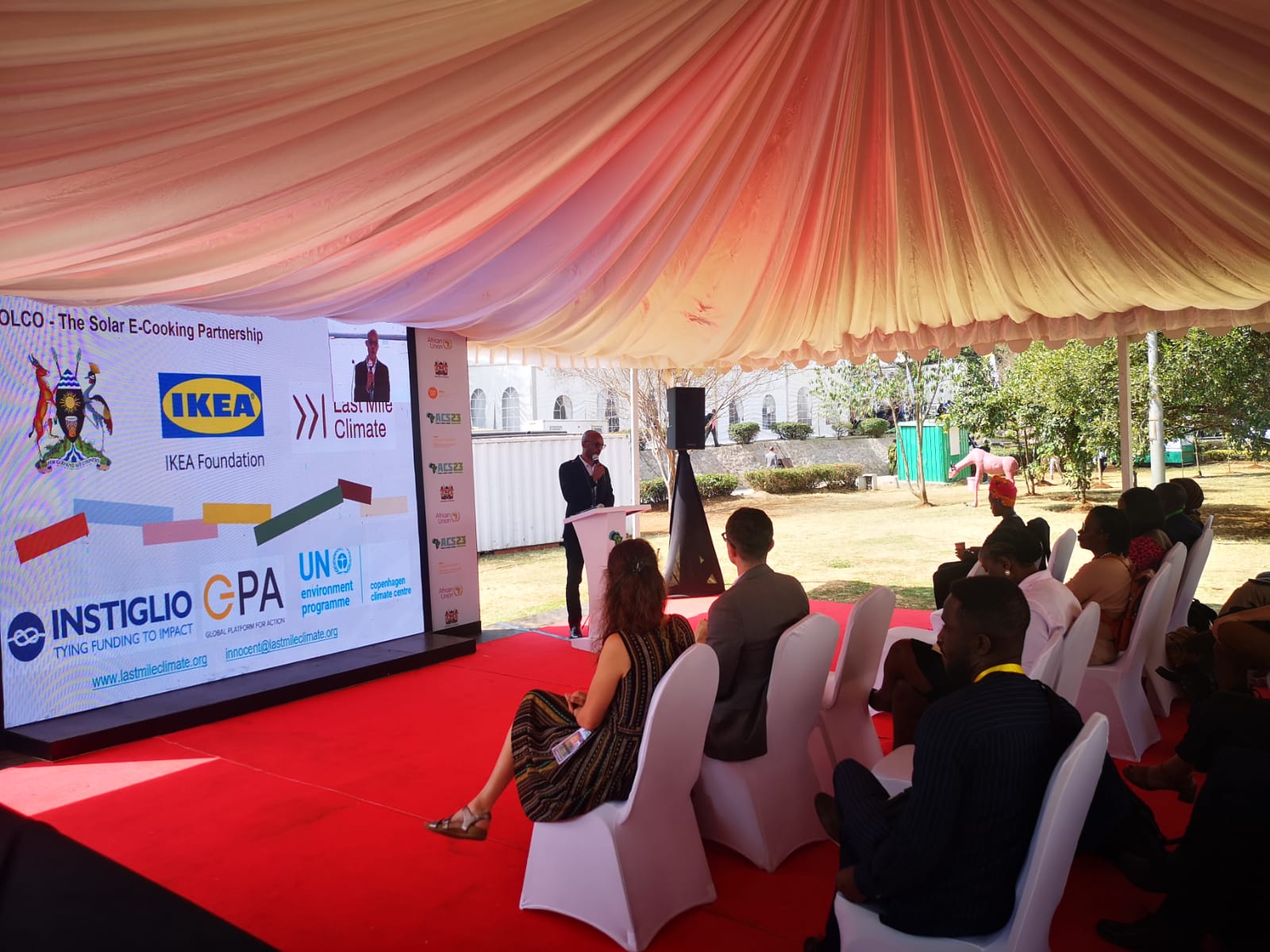Along with UNEP Copenhagen Climate Centre and a host of other partners, Uganda is introducing sustainable cooking to some of the most vulnerable communities, addressing energy access, health, and environmental sustainability. The goal is to create affordable access to solar electric-cooking for 150,000 households by 2027.
At a meeting on 11 April, the Government of Uganda and multiple other UN, Private Sector, and Civil Society partners agreed to set up a steering committee to oversee the implementation in Uganda of the Solar-Electric Cooking Partnership for Displacement Contexts (SOLCO).
SOLCO is a multistakeholder effort to help grow the market for solar e-cooking technologies for last mile communities across Africa, launched as part of the Global electric Cooking Coalition (GeCCo) at COP28.
SOLCO is one of three Climate Action Partnerships co-designed by UNEP Copenhagen Climate Centre that were submitted as pledges to the Global Refugee Forum in December 2023, developed with support from the Ikea Foundation.
UNEP Copenhagen Climate Centre provides technical capacity to participating Governments, including Uganda’s through SOLCO, as well as facilitates access to sources of global climate finance to help lower the capital costs of e-cooking technologies, aligned with national clean cooking strategies and the NDCs.
A transformative solution
The Government of Uganda was represented at the event in Kampala by Simon Peter Ssekitoleko, Assistant Commissioner for Renewable Energy at the Ministry of Energy and Minerals Development. Ssekitoleko delivered a comprehensive speech, detailing how solar e-cooking aligns with multiple SDGs, including most clearly SDG7, 3, 5, 13, and 15.
He concluded by stating that “Solar e-cooking offers a multitude of benefits that extend beyond simple meal preparation. It represents a transformative solution that addresses energy access, health, environmental sustainability, and socio-economic empowerment, making it a cornerstone of our efforts to build a more resilient and equitable future. Thank you for your continued support and collaboration. By working together through SOLCO, we can harness the power of solar energy to create positive change and leave a lasting legacy for generations to come.”
Affordable access for the most vulnerable communities
In Uganda, which is home to Africa’s largest refugee population of 1.6 million people, SOLCO has a target to create affordable access to solar e-cooking systems for 150,000 households by 2027. SOLCO operates in support of the Ugandan Government’s Sustainable Energy Response Plan (SERP), which is an innovative approach to integrate long-term displaced populations into national clean energy policy and planning.
On behalf of Mercy Corp acting Director of Programs Mr. Emmanuel Ogwok stated that “SOLCO is playing a pivotal role in addressing one of the most critical challenges facing the most vulnerable communities, particularly refugees in Uganda. There is an urgent need for all partners to collaborate effectively to provide technologies that are affordable and sustainable through innovative business models to ensure that the target of reaching 150,000 households by 2027 is met.”
The SERP was discussed in a detailed report co-authored by UNEP-CCC and Chatham House in 2022, which laid out a reform agenda for the delivery of SDG7 in situations of displacement. The analysis focused on how to deliver access to sustainable energy in situations of displacement, and how collaborations can unlock global sources of climate finance.
Collaborative action on SDG 7
Speaking at the event online, James Haselip, Senior Advisor at UNEP Copenhagen Climate Centre, highlighted the collaborative nature of SOLCO as a radically different way of designing and delivering sustainable energy solutions in situations of displacement: “SOLCO is a truly collaborative effort that is driven by members of the UN’s inter-agency Global Platform for Action on SDG7 in situations of displacement (GPA), including MercyCorp, MECS, WFP and UNHCR. This is the best way for us to collaborate and coordinate in what is often a crowded and confusing space with mixed mandates.”
Jakob Øster, the Executive Director of Last Mile Climate who brokered the Climate Action Partnerships including SOLCO said that “Households can turn their annual CO2 emissions from cooking with biomass, about 4 tons, into an asset. By switching to solar-electric cooking and using Digital Measurement, Reporting, and Verification (MRV), they can earn up to USD 80 from high-quality carbon credits each year.”
See here for more info on UNEP’s contribution to Climate Action at the Last Mile.


